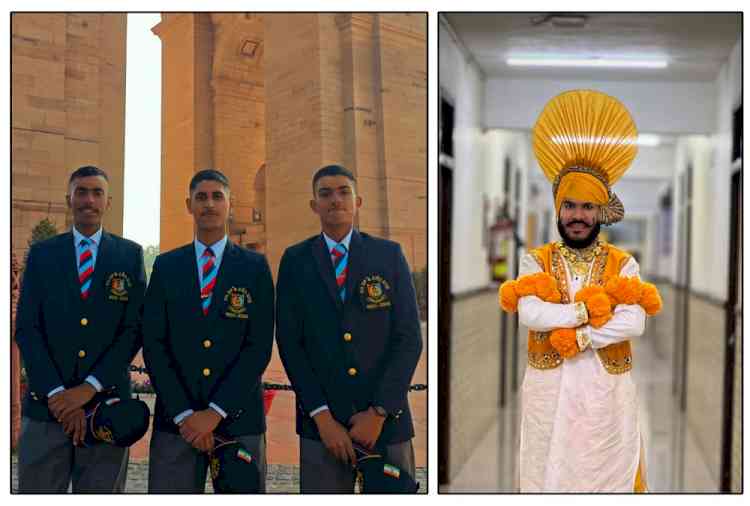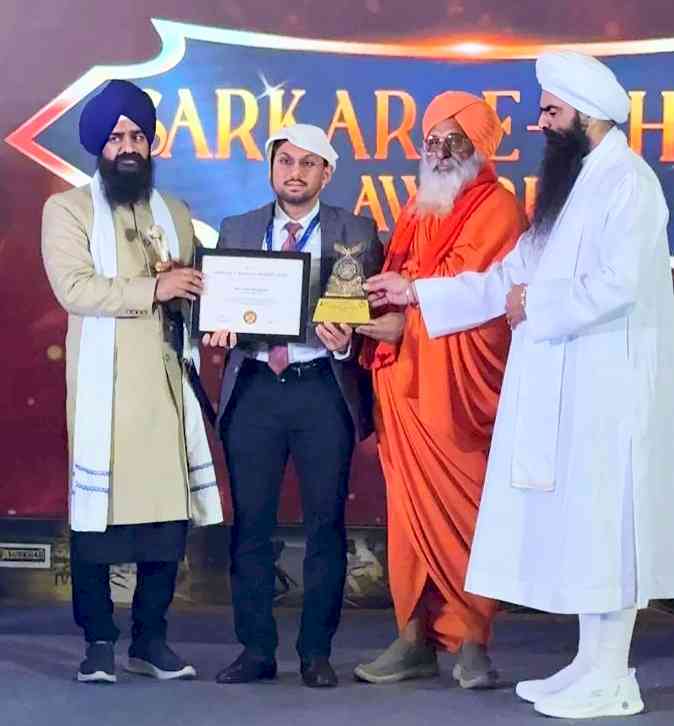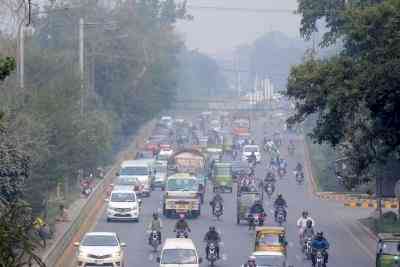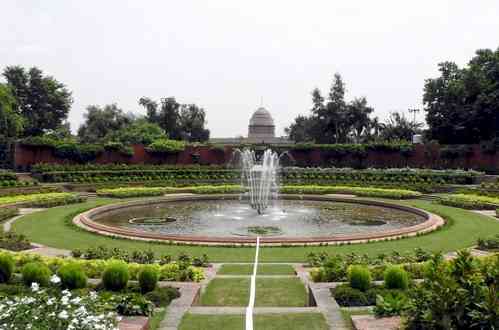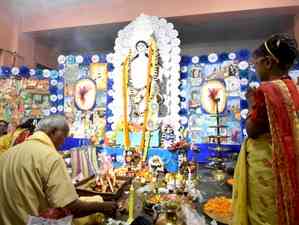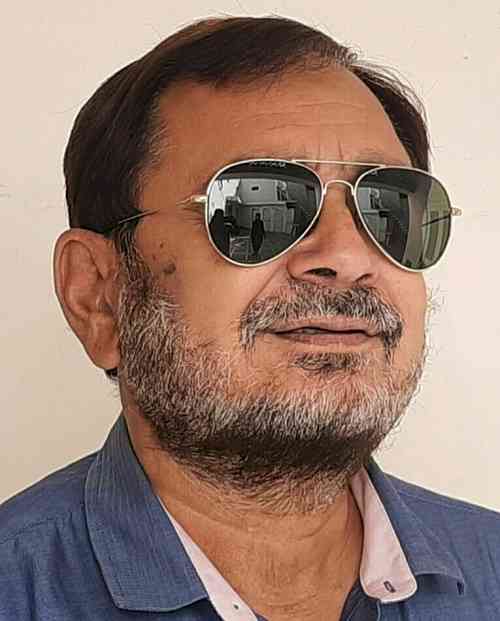Distinguished personalities from Media and Education shared their views on “Western Media Narratives on India” during Seminar at Central University of Punjab
The Department of Mass Communication and Media Studies at CU Punjab, under the patronage of Vice-Chancellor Prof. Raghavendra P. Tiwari, organized a Seminar on 'Western Media Narratives on India.' The event attracted a large number of attendees, including notable figures from media education and journalism, including Umesh Pandey (Senior Journalist and author of Western Media Narratives), Prof. Baldev Bhai Sharma (Vice-Chancellor, Kushabhau Thakre University of Journalism and Mass Communication, Raipur), Prof. B.K. Kuthiala (Former V-C, MCNUJC and Ex-Chairman Higher Education Council, Haryana), Prafulla Ketkar (Editor, Organizer), and Amit Sharma (Resident Editor, Dainik Jagran), gracing the occasion.
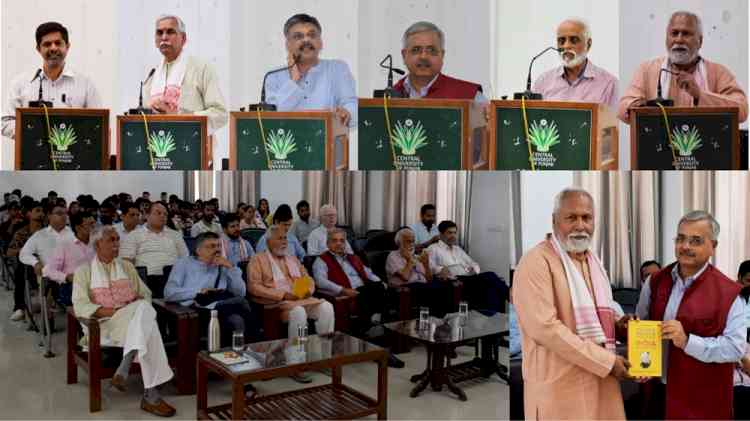
Bathinda, April 23, 2024: The Department of Mass Communication and Media Studies at CU Punjab, under the patronage of Vice-Chancellor Prof. Raghavendra P. Tiwari, organized a Seminar on 'Western Media Narratives on India.' The event attracted a large number of attendees, including notable figures from media education and journalism, including Umesh Pandey (Senior Journalist and author of Western Media Narratives), Prof. Baldev Bhai Sharma (Vice-Chancellor, Kushabhau Thakre University of Journalism and Mass Communication, Raipur), Prof. B.K. Kuthiala (Former V-C, MCNUJC and Ex-Chairman Higher Education Council, Haryana), Prafulla Ketkar (Editor, Organizer), and Amit Sharma (Resident Editor, Dainik Jagran), gracing the occasion.
During this event Senior Journalist Narratives Umesh Upadhyay presented his first book, "Western Media Narratives on India - From Gandhi to Modi," to the Vice-Chancellor Prof. Raghavendra P. Tiwari. The book critically examines the portrayal of India in Western media from historical and contemporary perspectives. Shri Upadhyay cited examples from his book illustrating how global perceptions of India have largely been influenced by biased narratives perpetuated by Western media, highlighting their distorted portrayal of India to maintain dominance. He said that the western media is a product of imperialism, and their job is to protect supremacy of colonial powers. He stressed the imperative of comprehending the imperialistic nature of media and advocated for developing a counter narrative rooted in Indian ethos.
Prafulla Ketkar, Editor of Organiser based in New Delhi, emphasized the importance of the book "Western Media Narratives on India" for aspiring journalists to understand Western biases. He highlighted Bharat's resilience against historical incursions and invasions, stressing the need to counter biased portrayals in Western media by promoting Bharatiya philosophy of unity in diversity. Shri Ketkar urged journalists to challenge Western-centric ideologies and present a balanced narrative reflecting India's positive global contributions.
Prof. Baldev Bhai Sharma, Vice-Chancellor, Kushabhau Thakre University of Journalism and Mass Communication, Raipur provided profound insights into the impact of cultural imperialism driven by Western media on Indian society. He emphasized that the preference for Western ideologies allows Western media to perpetuate their dominance by portraying India negatively. Professor Sharma emphasized the importance of shifting the colonial mindset among youth by instilling pride in Bharat, encouraging participants to contribute to shaping a balanced global perception of India.
Media & Communication Research Veteran Prof. BK Kuthiala, Former VC, Makhanlal Chaturvedi National University of Journalism and Communication (MCNUJC) and Former Chairman Higher Education Council, Haryana, continued the discussion by asserting that Western media, in maintaining hegemony, opposed the New World Information and Communication Order (NWICO) proposal introduced by McBride's Commission in 1980 as it advocated need to ensure free flow of information, and safeguard cultural identities. He advocated countering Western self-centric strategies by promoting Bharat Punruthan (Indian Renaissance) and establishing media watch centers in universities to challenge false narratives propagated by foreign media houses.
Amit Sharma, Resident Editor of Dainik Jagran, Punjab-Chandigarh, highlighted that the agenda and biased narratives of the west were clearly visible during farmer agitation, COVID-19, Article 370’s abrogation, and terror attacks. He emphasized that Indian journalists should verify the facts of news story shared by western media houses.
In his presidential address, Vice-Chancellor Prof. Raghavendra P. Tiwari, expressed gratitude to distinguished speakers, affirming that the seminar facilitated meaningful dialogue and critical analysis of India's portrayal in Western media narratives. Prof. Tiwari underscored the necessity of critically examining media depictions of India, fostering nuanced understanding of India's diverse cultural heritage, and promoting narratives that authentically reflect the nation's identity. He proposed special awareness programs, such as certificates, diplomas, or credit courses, to educate youngsters about Western media biases.
The seminar commenced with the welcome address by Dr. Bhavnath Pandey, Dean, School of Information and Communication Sciences. Dr. Rubal Kanozia, while elaborating on the Seminar theme highlighted that we have the potential to break the false narratives of western media. Towards the end, Dr Vijay Sharma, Registrar, thanked everyone for making this programme a success. Faculty, research scholars and students from different departments attended this programme.


 City Air News
City Air News 
